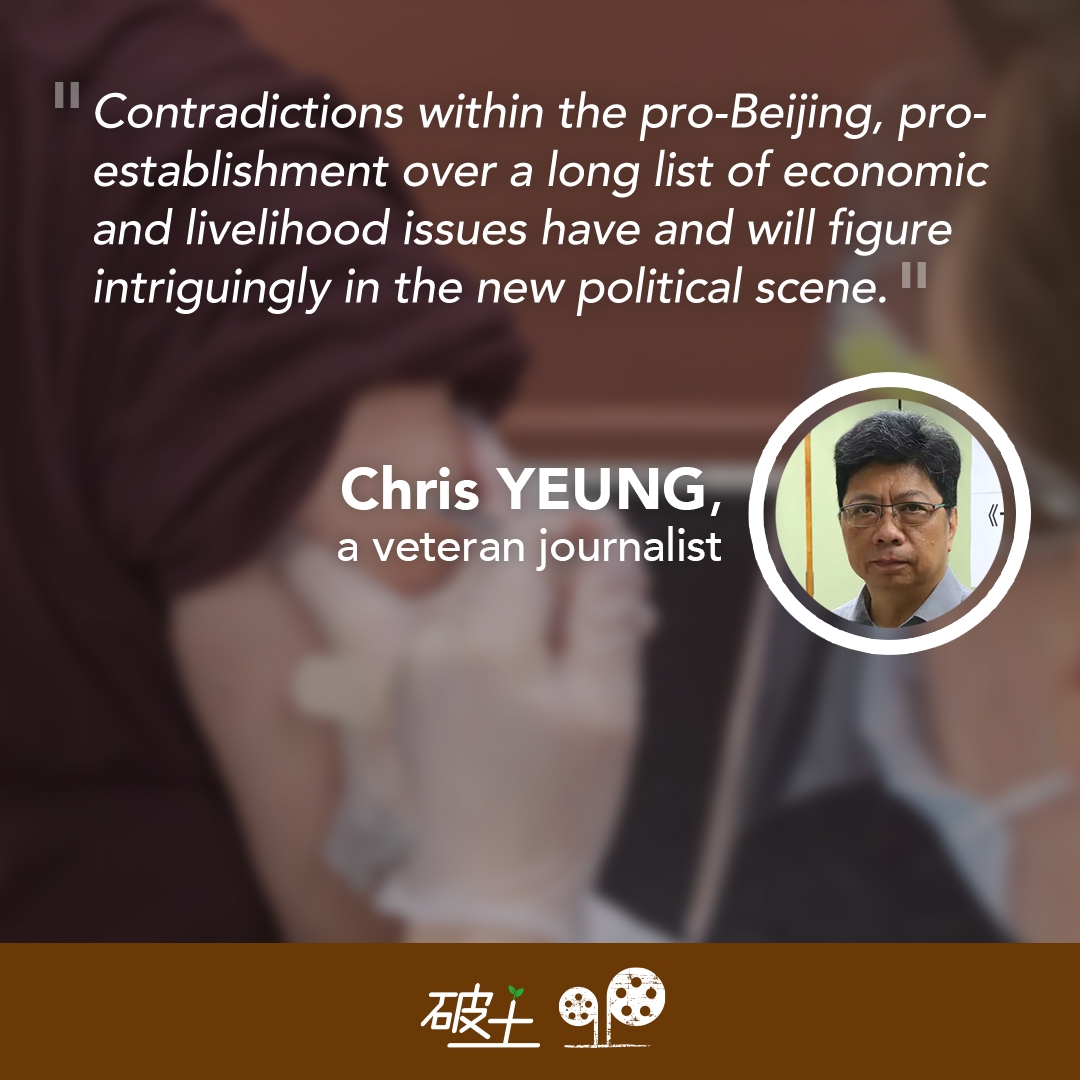Dissonance in new HK polity

In an act resembling China’s “wolf-warrior propaganda”, Hong Kong’s health minister fought back claims by a foreign media outlet that he did not see eye to eye with Chief Executive John Lee and some cabinet members when it comes to the Government’s hotel quarantine policy.
Writing on his Facebook page on September 4, Lo Chung-mau denied a news report alleging a split within the ruling team on whether to scrap hotel quarantine by November before two major international events on finance and rugby are scheduled to be held.
Lo went further to question the professionalism of the foreign and local media, which gave the story certain coverage, claiming publication of the report could hinder the Government’s anti-Covid work.
He did not name names, but it was clearly referring to a Bloomberg report that cited “people” claiming John Lee hoped to cancel hotel quarantine by November, but officials were split on the decision.
Speaking to reporters before the Executive Council resumed its regular Tuesday meeting after a summer break, Lee backed Lo’s “no-split” statement, but was markedly moderate in his tone without firing more salvos against the media. He stressed that his team was in good shape and has worked together well.
The rebuttal of Lo and Lee is in line with the aggressive propaganda tactic adopted by the Carrie Lam administration since the outbreak of the 2019 social movement. After Lee took the helm, the new team has doubled their efforts to stop the dissemination of what they deemed as misinformation, rumours and lies and publicise what they see as the truth.
In view of his pledge of leading an united team to build a better Hong Kong, it is not a surprise that Lo and Lee have acted swiftly to trash the Bloomberg report and any claims of disunity within his team.
What is intriguing is the question of whether there is indeed discord within the ruling team and, if yes, what it is all about.
With the pro-democracy opposition force being marginalised, if not muted, three years after the 2019 unrest, dissonance in the new SAR polity has arguably now come from within the all-patriots camp over issues such as anti-Covid strategy and a public housing plan in the Fanling Golf Course. More is likely to come.
Putting aside the issue of hotel quarantine, different views on issues such as mandatory vaccination and social distancing measures in the pro-establishment circle have already emerged.
An eyebrow-raising case featuring former chief executive Leung Chun-ying, who has called for mandatory vaccination to shoot up vaccination rate in order to bring down the daily infection figures. In an apparent move not to confront one of his predecessors and avoiding a split, John Lee sidestepped the question of compulsory jabbing.
Another case saw former health minister and Executive Council member Ko Wing-man blasting some medical experts who called for easing social distancing measures, saying they have spread panic. He did not name names.
If Dr Ko seems to have taken a hardline stance on anti-Covid measures, calls for easing hotel quarantine for visitors from within the pro-government circle are growing.
Dr Allen Shi(史立德), president of the Chinese Manufacturers’ Association, has urged the Government to abolish hotel quarantine by November. He warned keeping the present quarantine measures unchanged will damage the city’s competitiveness and image.
Reporting her visit to Indonesia, chairman of the Democratic Alliance for the Betterment and Progress of Hong Kong Starry Lee quoted Indonesian business people as saying Hong Kong’s anti-Covid policy has become a disincentive for them to travel to the city.
Those calls for easing hotel quarantine are indicative of the tussle within the pro-establishment circle and, perhaps also, in the Lee team with dates of the financial summit and Hong Kong International Rugby Seven drawing near.
The anti-Covid strategy aside, a fresh round of debate over land and housing development has already begun when a government environmental assessment impact report of a public housing development plan at the Fanling Golf Course was tabled to an advisory body for scrutiny last month.
Regina Ip and Ronny Tong, who are both Executive Councillors, have taken the lead in opposing the project, which was given the greenlight by the Carrie Lam administration. Development minister Bernadette Linn was quick to reiterate there is no change to the housing project.
Her assurance is not enough to put a full stop to the debate over the public housing plan.
Taken together with calls from leading pro-establishment figures for a reversal of the Lam administration’s decision not to develop housing in green zones, the Lee team’s land and housing plan likely to be featured in the October Policy Address looks set to cause a stir in the pro-establishment camp and society at large.
The possibility of the democratic opposition regaining their strength in the short-run looks remote. The city’s political landscape has drastically changed. Contradictions within the pro-Beijing, pro-establishment over a long list of economic and livelihood issues have and will figure intriguingly in the new political scene.
▌[At Large] About the Author
Chris Yeung is a veteran journalist, a founder and chief writer of the now-disbanded CitizenNews; he now runs a daily news commentary channel on Youtube. He had formerly worked with the South China Morning Post and the Hong Kong Economic Journal.